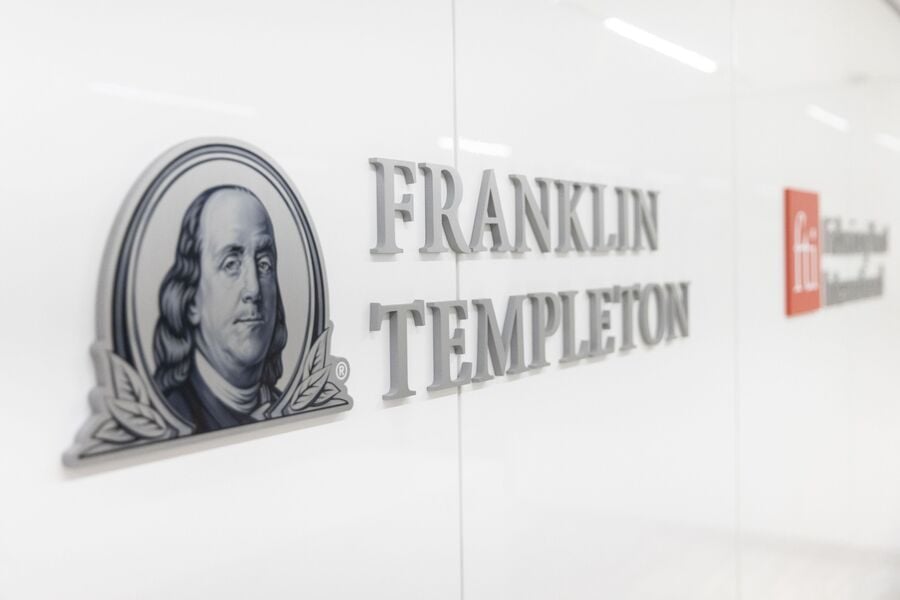

The $925 million that Franklin Resources is paying to buy Putnam Investments is being described as a fair price, but the deal doesn’t do much to help the Franklin Templeton asset management complex keep up with the times.
“Franklin continues to build on their core capabilities, but those core capabilities continue to bleed assets,” said Cathy Seifert, equity analyst at CFRA.
While the Putnam deal, which is expected to close in the fourth quarter, will add $136 billion to Franklin’s $1.4 trillion in total assets under management, Seifert said it is just more growth through acquisitions for Franklin.
“The acquisition is likely to be modestly accretive, which is good for them, but without much additional exposure into the more rapidly growing areas of asset management, such as alternatives and passive ETFs,” she said.
The deal, which was announced Wednesday morning, is being promoted as a kind of strategic partnership between Franklin and Putnam owner Great-West Lifeco because Great-West, a Canadian insurance conglomerate, is hiring Franklin to manage $25 billion as part of the agreement.
Because the $25 billion will be counted as organic growth, Seifert described that aspect of the transaction as a strong positive for Franklin.
“That’s the more encouraging part of the deal, because it helps the organic rate of growth,” she said.
Great-West will also hold a 4.9% interest in Franklin Templeton on a long-term basis and will retain its controlling interest in PanAgora Asset Management.
Todd Rosenbluth, director of research at VettaFi, was slightly more optimistic about Franklin's efforts to gain scale.
“Putnam has a strong active management brand with a record of outperformance across various mutual fund investment styles,” Rosenbluth said. “They only recently expanded the lineup to include actively managed ETFs. Franklin continues to use its financial strength to create scale advantages, which should help in a highly competitive environment.”
Paul Mahon, Great-West's president and chief executive, pitched the deal as a benefit for investors.
"Franklin Templeton is a diversified global asset management firm, well-positioned to take Putnam's strengths to the next level," he said in the statement. "As client needs for asset management continue to evolve, Franklin Templeton's scale and breadth, together with Putnam's complementary capabilities will drive positive outcomes for our companies, our clients, and our investors"
Putnam Chief Executive Robert Reynolds also praised the benefits of scale and diversification in the statement.
"Critical to this transaction is the strong alignment between our organizations,” he said. “We share a client-centric culture, a core belief in active management, a collaborative and research-based investment approach, and a long-held commitment to fundamental investment principles. Together, we will continue serving our clients and upholding our commitment to them and their needs. We look forward to joining Franklin Templeton in the next phase of our growth."
In midday trading Wednesday, Franklin shares were down 2.9%, Great-West shares were up 8 basis points, and the S&P 500 Index was up 90 basis points.

Looking to refine your strategy for investing in stocks in the US market? Discover expert insights, key trends, and risk management techniques to maximize your returns

Driven by robust transaction activity amid market turbulence and increased focus on billion-dollar plus targets, Echelon Partners expects another all-time high in 2025.

The looming threat of federal funding cuts to state and local governments has lawmakers weighing a levy that was phased out in 1981.

The fintech firms' new tools and integrations address pain points in overseeing investment lineups, account monitoring, and more.

Canadian stocks are on a roll in 2025 as the country prepares to name a new Prime Minister.
RIAs face rising regulatory pressure in 2025. Forward-looking firms are responding with embedded technology, not more paperwork.
As inheritances are set to reshape client portfolios and next-gen heirs demand digital-first experiences, firms are retooling their wealth tech stacks and succession models in real time.
